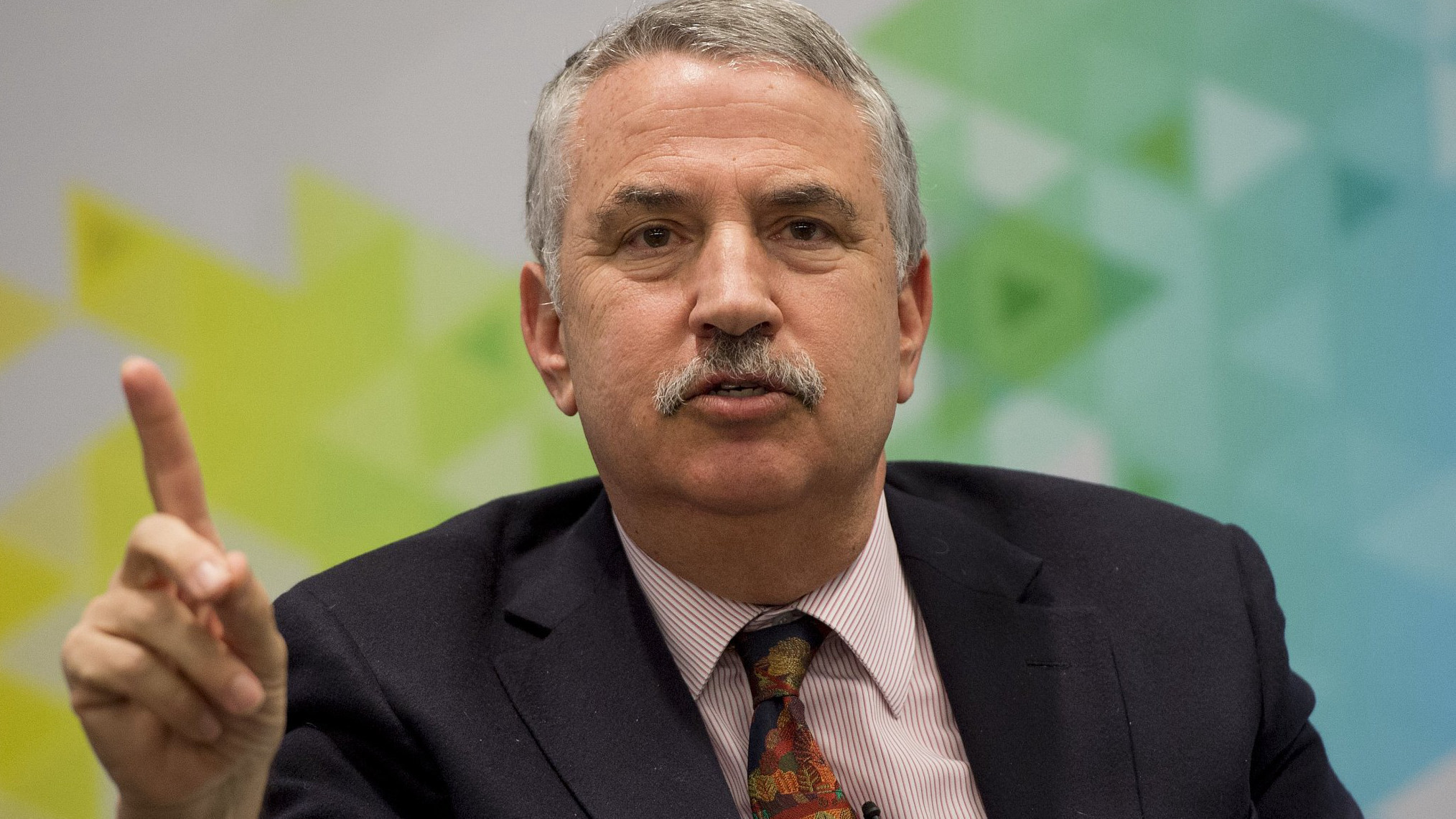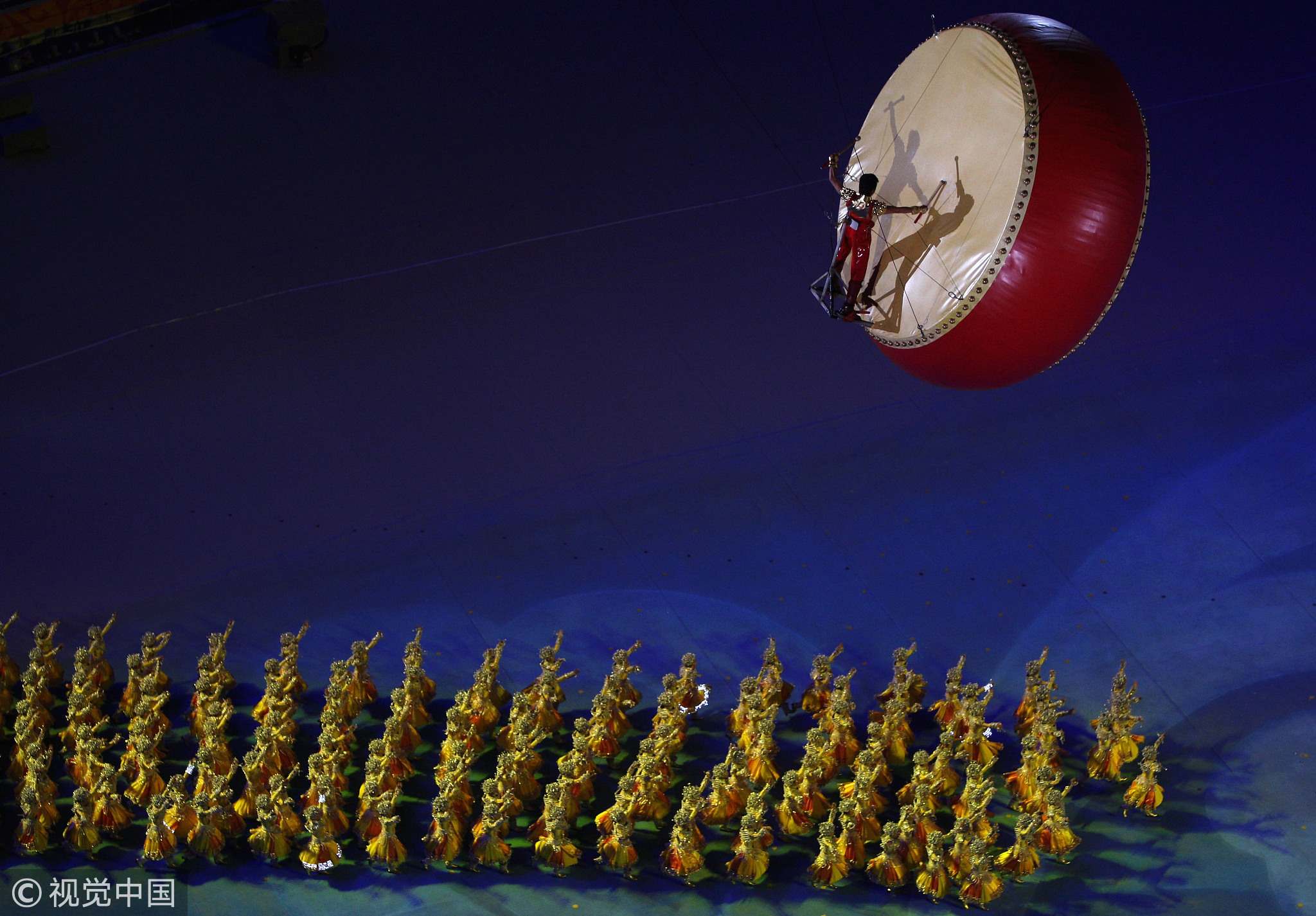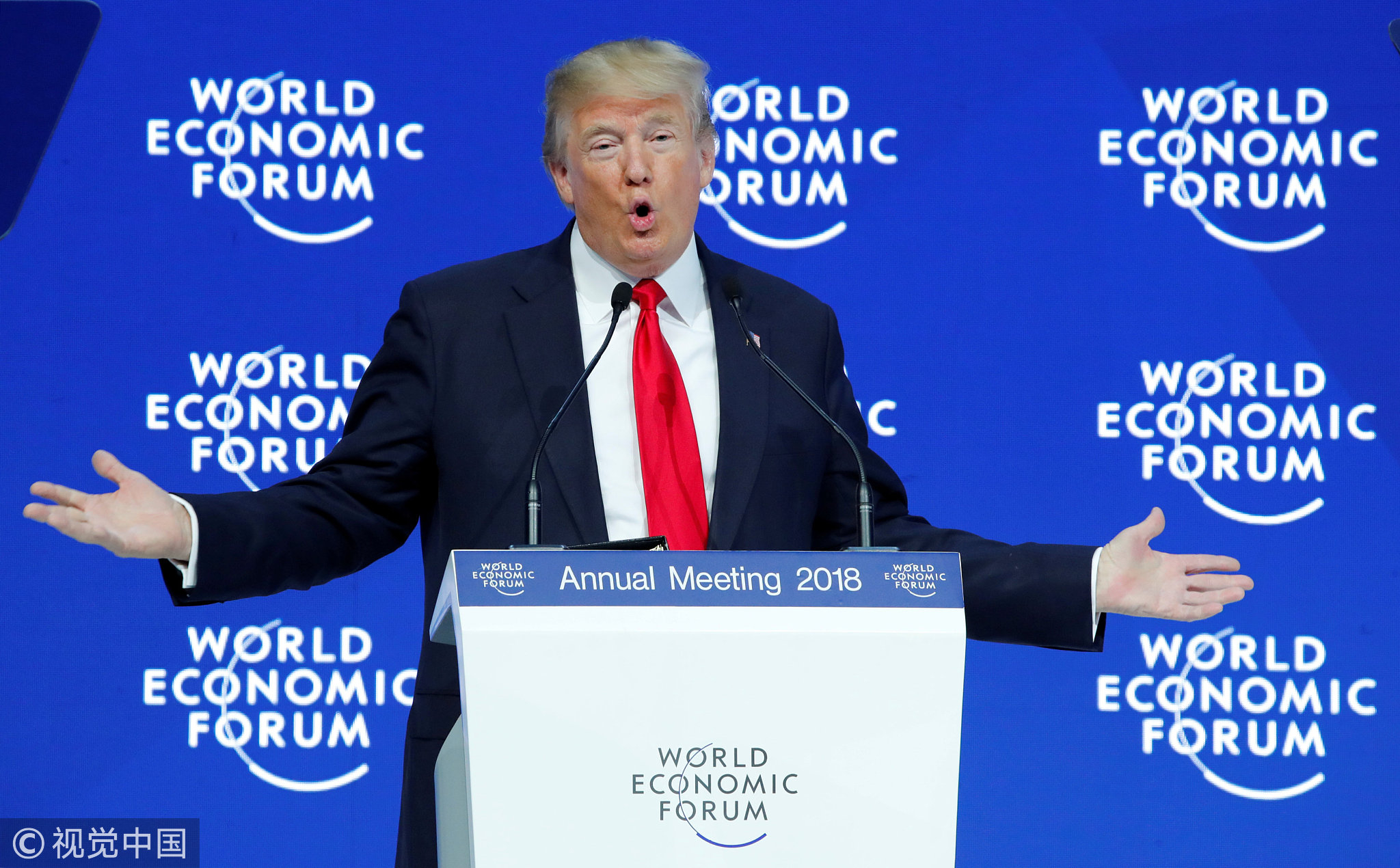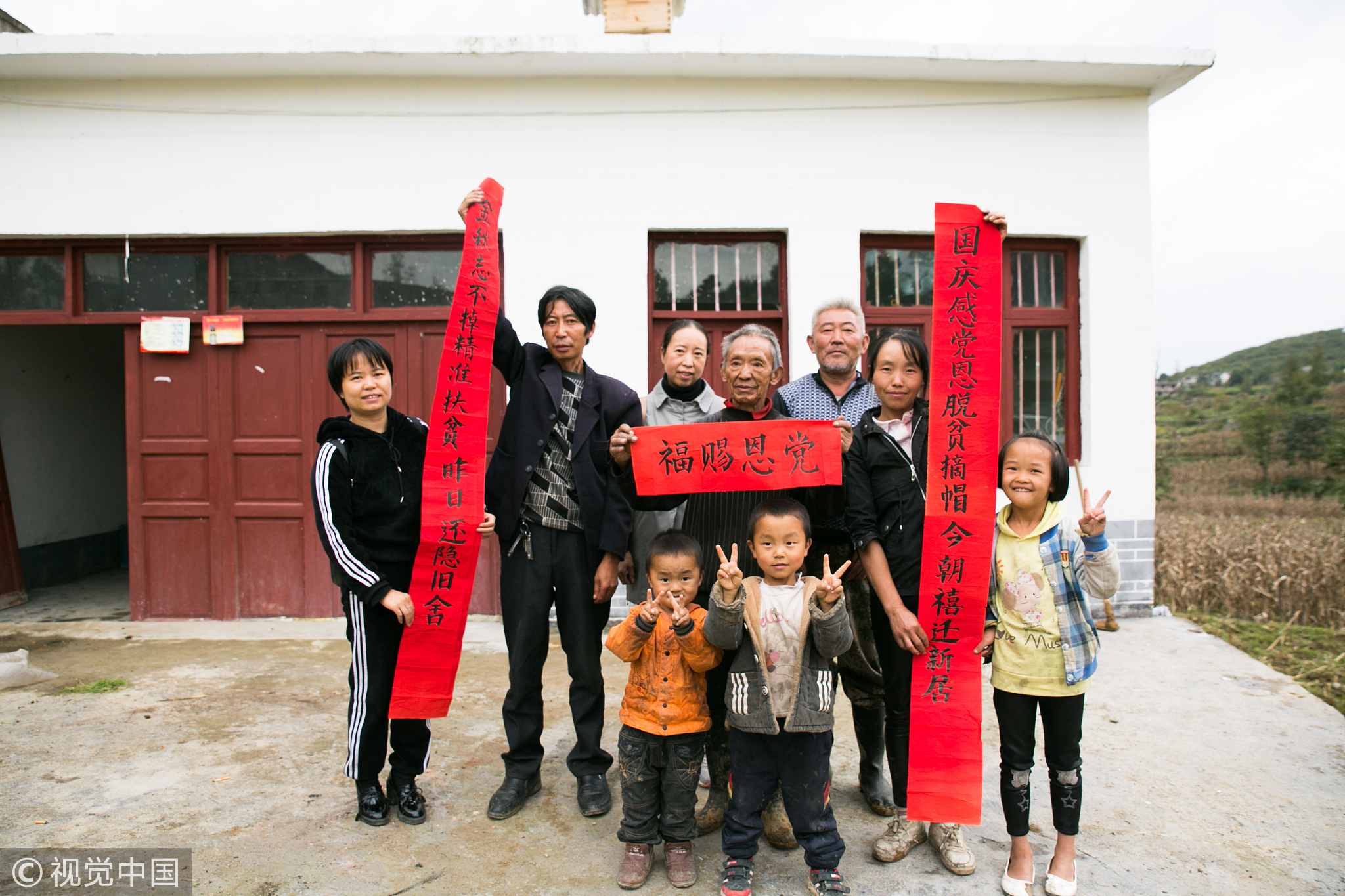
Opinions
12:11, 17-Oct-2018
Opinion: Rereading Thomas Friedman ten years on
Updated
11:55, 20-Oct-2018

Editor's note: This article is an edited translation published by China Plus of a commentary from the Chinese-language "Commentaries on International Affairs".
Ten years ago, American commentator Thomas Friedman wrote an opinion piece for The New York Times as the Beijing Olympics was drawing to a close.
In "The Biblical Seven Years," he wrote about "attending the spectacular closing ceremony at the Beijing Olympics and feeling the vibrations from hundreds of Chinese drummers pulsating in my own chest."
Looking back to July 2001, he recalled the moment when Beijing won the right to host the 29th Summer Olympics. Almost two months later, the United States went through the trauma of the 9/11 terror attacks. Since then, the two countries have embarked on very different paths.
Friedman lamented that in the years that followed "China has been preparing for the Olympics; we've been preparing for al-Qaeda. They've been building better stadiums, subways, airports, roads, and parks. And we've been building better metal detectors, armored Humvees, and pilotless drones."
He believed that "it's clear that the next seven years need to be devoted to nation-building in America."

Musicians play a giant drum during the closing ceremony of the Beijing 2008 Olympic Games in Beijing, China, August 24, 2008. /VCG Photo
Musicians play a giant drum during the closing ceremony of the Beijing 2008 Olympic Games in Beijing, China, August 24, 2008. /VCG Photo
A decade later, while China has continued along its road of reform and opening-up, the United States has continued on its path towards decay. President Trump promised to deliver 1.5 trillion US dollars in infrastructure projects, but these projects are closer to aspirations than they are to concrete plans.
LaGuardia airport's "dumpy terminal in New York City" has changed since Friedman described it a decade ago, but only in so far as it's carrying an additional ten years of wear and neglect. Meanwhile, China has developed in leaps and bounds.
In 2008, the Beijing-Tianjin intercity high-speed railway, the first high-speed railway on the Chinese mainland, went into service. Today, in most provinces, regions, and major cities across China, you'll find stations along what is the world's largest high-speed rail network.
Donald Trump, who entered the White House under the slogan "Make America Great Again," has set aside ideas about working towards goals that benefit all of mankind. Instead, he has turned inward, withdrawing the United States from the Trans-Pacific Partnership Agreement, the Paris agreement on climate change, the Iran nuclear deal, and United Nations agencies including UNESCO and the Human Rights Council.

US President Donald Trump gestures as he delivers a speech during the World Economic Forum (WEF) annual meeting in Davos, Switzerland, January 26, 2018. /VCG Photo
US President Donald Trump gestures as he delivers a speech during the World Economic Forum (WEF) annual meeting in Davos, Switzerland, January 26, 2018. /VCG Photo
His administration has repeatedly placed America's interests above international norms and his country's global commitments, and in doing so aroused opposition and condemnation from around the world.
But the ties President Trump has sought to cut most enthusiastically are those between the United States and China. A few days ago, during a phone interview with Fox News, he accused China of taking 500 billion US dollars a year out of his country, by means that include trade.
He said the United States was responsible for building China, and complained that "they've lived too well for too long." But when President Trump talks about China "getting money" out of the United States, what he's largely talking about is American consumers choosing to buy goods made in China – some of which are made by American companies here.
Former US secretary of state Colin Powell has said that China's development has brought many benefits to the United States, and that American consumers have decided they want to buy "high-quality low-cost Chinese goods."
Another former US secretary of state, Madeleine Albright, has pointed out that "There is no question that China is the rising power, some of it because of their own history and their capabilities, some of it because we have left a vacuum and are not playing the role that I think we should be playing."
The US Federal Reserve, in the results of its latest annual survey released in May, said that 40 percent of Americans they surveyed couldn't lay their hands on 400 US dollars in an emergency, short of taking out a loan or by selling property.

A family stands in front of their new house in Dazhai Village, Guizhou Province, China, October 1, 2018. /VCG Photo
A family stands in front of their new house in Dazhai Village, Guizhou Province, China, October 1, 2018. /VCG Photo
China is blighted with the problem of extreme poverty, for sure. But the number of people living in poverty fell from nearly 200 million in 2008 to only around 30 million in 2017. And China's government has vowed to pull these last 30 million people out of extreme poverty by 2020.
"Development" is a constantly evolving process, and no country can afford to stand still if it expects to maintain the standard of living for its people, and its position in the world economy. And development is not a zero-sum game: progress in one country doesn't have to mean stagnation in another.
President Trump's claim that America's problems are the result of Chinese people living "too well for too long" isn't an argument based on economics; it is a lazy deflection of the responsibility the American government has to improve the lives of its people.
The Chinese people deserve the right to live well, just as the American people should expect that their government will work to make their country great through concrete action and not finger pointing.
(Cover: Thomas Friedman speaks during a discussion with IMF Managing Director Christine Lagarde (not pictured) at IMF Headquarters in Washington, DC, January 5, 2017. /VCG Photo)
(If you want to contribute and have specific expertise, contact us at opinions@cgtn.com.)

SITEMAP
Copyright © 2018 CGTN. Beijing ICP prepared NO.16065310-3
Copyright © 2018 CGTN. Beijing ICP prepared NO.16065310-3